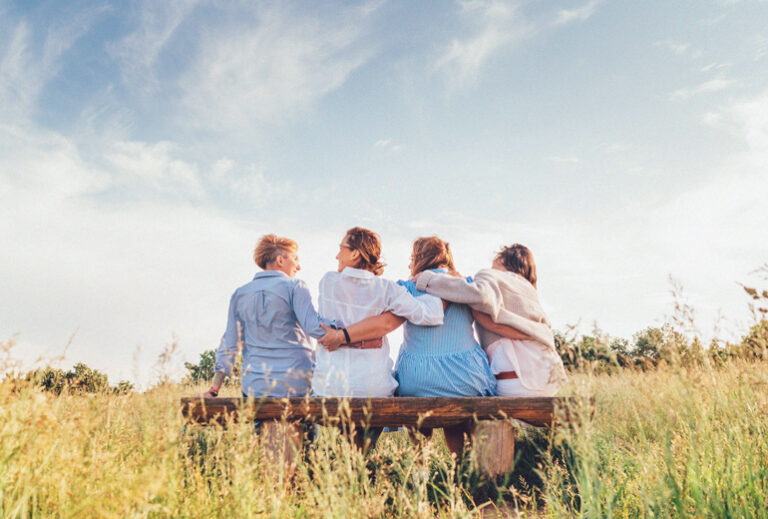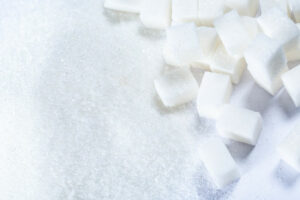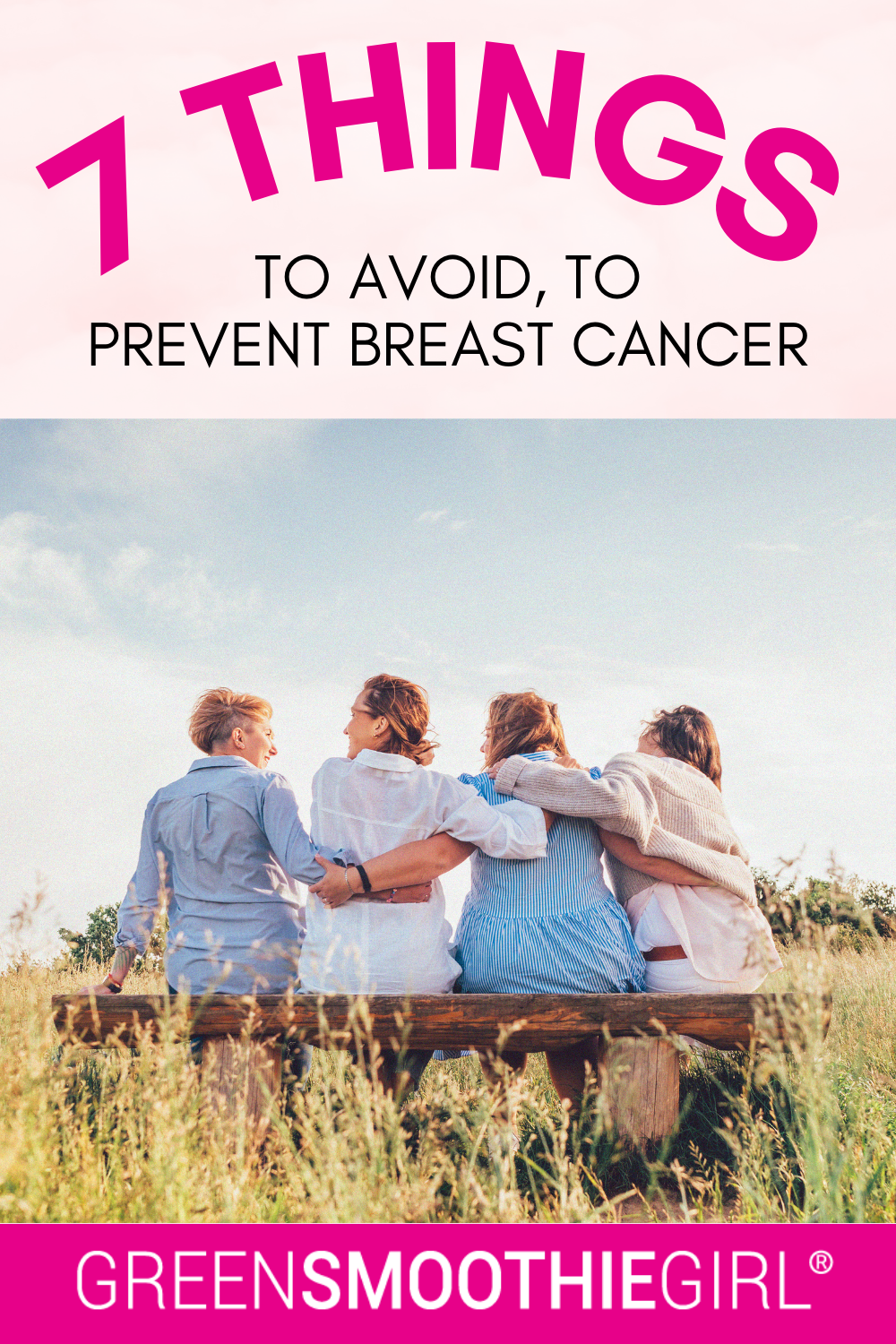7 Things You Should Avoid to Prevent Breast Cancer

The Biggest Misconception About Breast Cancer
Even if nobody in your family has breast cancer, you could still be at risk.
When I spoke to Dr. Kristi Funk, a breast cancer surgeon, she told me, “The biggest misconception is literally, ‘Breast cancer doesn’t run in my family…I’m not at risk for it.’ Totally false, nothing could be further from the truth.”
In fact, almost 90% of all breast cancer has nothing to do with genetics or having a strong family history.1
Lifestyle choices are by far the biggest indicator of breast cancer risk.
7 Lifestyle Changes to Help You Prevent Breast Cancer
#1 — Avoid Alcohol
Alcohol use significantly increases your risk of breast cancer.
A 2019 study published in the International Journal of Epidemiology studied more than 500,000 women for 12 years.2 Alcohol intake had the highest association with breast cancer, of all factors studied.
Plus, for every 10 grams of alcohol (about a glass of wine or a half pint of beer) consumed per day, breast cancer risk increases by 7-10%, according to the International Agency for Research on Cancer.3
#2 — Avoid Bras
I interviewed Sydney Singer and Soma Grismaijer, who wrote a book called Dressed to Kill: The Link Between Breast Cancer and Bras.
They studied over 4,000 women and concluded that women who do not wear bras have a dramatically lower risk of breast cancer than women who do wear them.4
Why? One theory is that wearing a tight-fitting bra, especially for many hours a day, can cut off lymph drainage, making us less able to excrete the toxins we are exposed to daily.
Easy ways to address this are wearing blouses with a loose-fitting “shelf bra” built in, and taking your bra off when you’re at home. It’s a false narrative that not wearing a bra causes your breasts to sag.
Strong ligaments and tissues, nourished well and hydrated, using good nutrition and exercise, keep breasts from sagging.
#3 — Avoid Radiation Exposure
Do you go through the TSA scanners when you fly?
These scans use ionizing radiation, the same radiation used in X-rays, which increases your risk of cancer.5
You have a right not to be radiated in order to get on an airplane. You can say no to the radiation, and ask for a pat down instead.
Many biological dentists have lower-radiation imaging, for scans, and I don’t get them but about every 3 years, or if I’m having an issue. Medical and dental imaging contribute to a lot of our exposure.
Getting in the sun, yes. Getting sunburned, no.
I also minimize low-grade radiation by keeping my wi-fi off when I’m not working, keeping my phone on “airplane mode” most of the time, especially all night, and you can have your home tested for anything emitting high levels of EMF, ELF, and RF.
#4 — Avoid Sugar

Sugar is the food of cancer
Sugar is the food of cancer.
Nothing you do will have a bigger impact on your cancer risk, besides perhaps chemical exposure, alcohol, and high chronic stress–than how much processed sugar you eat.
Research6 shows that a diet high in added sugar may significantly raise your risk of breast cancer by increasing inflammation and the expression of certain enzymes related to cancer growth and spread. 7
In a large prospective study conducted in 2019, sugary drinks were positively associated with the risk of overall cancer and breast cancer.
And, 100% fruit juices were also positively associated with the risk of overall cancer. Eat the fruit, yes. But a glass of orange juice has the sugars of 8 oranges.
#5 — Avoid Eating Too Much Meat, Especially Processed Meat
Dr. Kristi Funk also told me: “I think to the degree that you make a change towards more plant-based eating, you are knocking down your cancer risk.”
In particular, processed meats like bacon and sausage may raise your risk of breast cancer. A 2018 literature review of 18 studies linked highly processed meat intake to greater breast cancer risk.8
The lowest-cancer-risk diet is the 90-100% whole-food plant-based diet.
#6 — Avoid Fast Food and Fried Foods
Sure, it’s easy, but eating fast food regularly has many downsides. Including increasing your risk of breast cancer.
Researchers in Great Britain evaluated the diets of 200,000 middle-aged adults. They found that for every 10% increase in ultra-processed foods a person ate, they had a 16% higher risk of developing breast cancer and dying.9
So, you want to limit foods at the drive-through, and also foods like frozen meals, packaged cookies, and candy.
Fried food also increases the risk of breast cancer. In a 2019 study of Iranian women, eating fried food was the largest risk factor for getting breast cancer.10
#7 — Avoid Suppressing Emotions

Suppressing negative emotions can contribute to breast cancer
Don’t be a “stuffer!”
It’s important, to decrease your cancer risk, that you learn to express, metabolize, and release negative emotions.
[Related: 11 Natural Ways to Deal with Stress, So You Can Stay in High Vibrations]
The University of Rochester and Harvard School of Public Health followed 729 individuals over 12 years and found a 70% increase in cancer deaths for those who scored highest in suppressing emotion.11
If people had extremely low “anger scores,” but were suppressing anger, they were more likely to have cancer and a rapid progression of the disease, according to research.
Why is that?
As Dr. Jeanette Raymond, Ph.D., puts it, “The stress caused by suppression releases massive amounts of hormones that damage the natural cycle of cell growth and death, leading to cancer … The repression of emotions, especially anger, appears to be a major factor that contributes to chronic stress, which stimulates the production of cancer cells.”12
I’m all about “Don’t Sweat the Small Stuff–and It’s All Small Stuff,” as the famous book said.
But, healthier women express themselves well, when it matters. The psychologist who wrote the book “Don’t Sweat the Small Stuff” had a remarkable marriage. (I interviewed his widow, some years ago.)
If your marriage is more problematic–speak up in relationships if you feel deeply wronged or have chronic resentment, and work on a resolution, even if a professional needs to be involved.
Women who have Titanic-sized simmering resentment and anger under a “nice-girl” facade tend to be the ones who get sick.
Read Next: Check out my related blog post on the 10 Foods That May Lower Your Breast Cancer Risk

Disclosure: This post may contain affiliate links that help support the GSG mission without costing you extra. I recommend only companies and products that I use myself.
Research
- Breast Cancer Risk Factors You Cannot Change. Cancer.org.
- Fung, Teresa T et al. Intake of specific fruits and vegetables in relation to risk of estrogen receptor-negative breast cancer among postmenopausal women. Breast cancer research and treatment vol. 138,3 (2013): 925-30. doi:10.1007/s10549-013-2484-3
- Rumgay, Harriet et al. Global burden of cancer in 2020 attributable to alcohol consumption: a population-based study. The Lancet. Oncology vol. 22,8 (2021): 1071-1080. doi:10.1016/S1470-2045(21)00279-5
- Dressed to Kill: The Link Between Breast Cancer and Bras.
- Mehta, Pratik, and Rebecca Smith-Bindman. Airport full-body screening: what is the risk?. Archives of internal medicine vol. 171,12 (2011): 1112-5. doi:10.1001/archinternmed.2011.105
- Jiang, Yan et al. A Sucrose-Enriched Diet Promotes Tumorigenesis in Mammary Gland in Part through the 12-Lipoxygenase Pathway. Cancer research vol. 76,1 (2016): 24-9. doi:10.1158/0008-5472.CAN-14-3432
- Chazelas, Eloi et al. Sugary drink consumption and risk of cancer: results from NutriNet-Santé prospective cohort. BMJ (Clinical research ed.) vol. 366 l2408. 10 Jul. 2019, doi:10.1136/bmj.l2408
- Farvid, Maryam S et al. Consumption of red and processed meat and breast cancer incidence: A systematic review and meta-analysis of prospective studies. International journal of cancer vol. 143,11 (2018): 2787-2799. doi:10.1002/ijc.31848
- Chang, Kiara et al. Ultra-processed food consumption, cancer risk and cancer mortality: a large-scale prospective analysis within the UK Biobank. EClinicalMedicine vol. 56 101840. 31 Jan. 2023, doi:10.1016/j.eclinm.2023.101840
- Marzbani, Behjat et al. Dietary patterns, nutrition, and risk of breast cancer: a case-control study in the west of Iran. Epidemiology and health vol. 41 (2019): e2019003. doi:10.4178/epih.e2019003
- Chapman, Benjamin P et al. Emotion suppression and mortality risk over a 12-year follow-up. Journal of psychosomatic research vol. 75,4 (2013): 381-5. doi:10.1016/j.jpsychores.2013.07.014
- Melanoma: How Repressing Anger Can Cause Cancer. GoodTherapy.
Image Notes
- Sugar image used under a Creative Commons 2.0 license by Marco Verch
- Image of woman from Pexels
Posted in: Emotional Health, Health Concerns, Lifestyle, Preventive Care

















No comments found, but you can be our first!